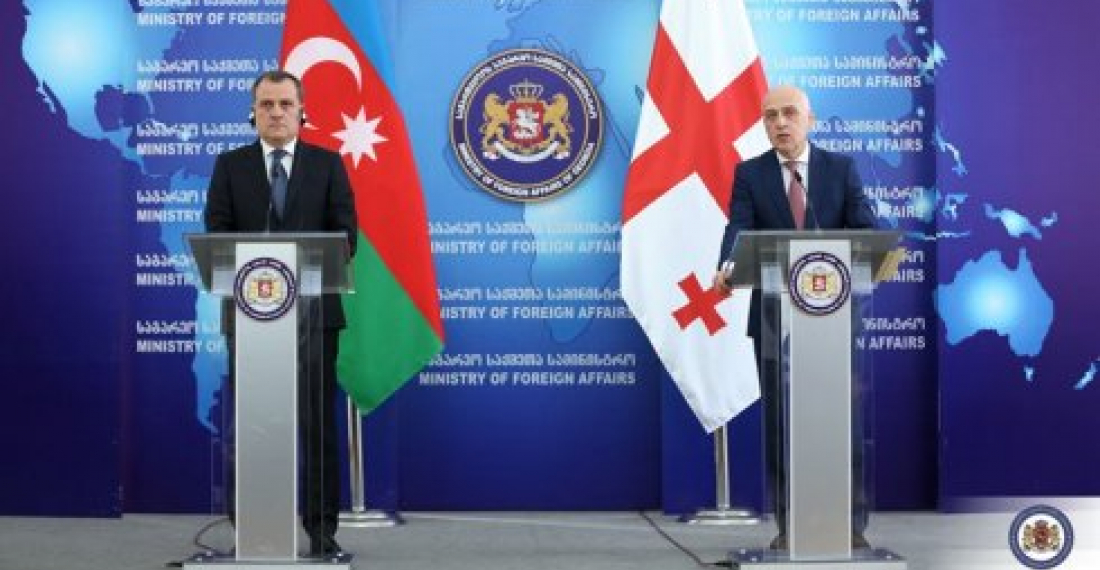The newly appointed Foreign Affairs of Azerbaijan Jeyhun Bairamov paid his first official visit to Georgia on Thursday (24 September).
During a meeting held at the Ministry of Foreign Affairs of Georgia, current issues of the bilateral agenda, prospects of cooperation in political, trade, economic, energy, education and cultural-humanitarian spheres, as well as the challenges facing the region were emphasized, said a statement posted on the Georgian foreign ministry website.
The statement said that the process of delimitation of the state border was discussed. It was regretted that due to the COVID-19 pandemic, the meetings and work planned within the commission could not be held. "Both sides expressed interest in actively continuing to work on the delimitation of the state border and resolving the issue in the spirit of strategic partnership between the two countries."
Referring to the matter at a press briefing later,Georgian Foreign Minister David Zalkaliani said that new map materials found by Georgia may bring changes to the Georgian-Azerbaijani 2006-2007 agreement on border issues.
On several occasions, the unagreed border has caused tension around Georgia's 6th century David Gareji monastery complex which is located on the border between Georgia and Azerbaijan.
Zalkaliani expressed hope that the border issue will be settled through consensus.
During the discussions in Tbilisi, Georgia and Azerbaijan expressed readiness to further strengthen the strategic partnership between the two countries and take it to a higher level.
source: commonspace.eu
photo: The foreign ministers of Georgia and Azerbaijan addressing a press briefing after their meeting in Tbilisi on 24 September 2020 (picture courtesy of the press service of the Georgian foreign ministry






